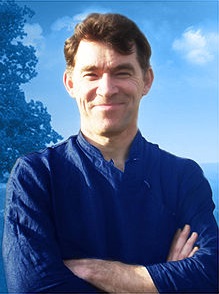Guest writer for Wake Up World
Some people are reluctant to spend time alone. Solitude makes them anxious and restless, and so they try to ensure that they’re always in the company of others. But other people have a completely different attitude toward solitude. Even if they enjoy the time they spend with others, they savor their moments of solitude. They find solitude therapeutic and essential to their well-being, a time to rest and reconnect themselves.
Solitude doesn’t necessarily mean loneliness. Loneliness is when we feel our separateness as human beings. We feel trapped inside our mental space, in separation from other human beings, and from a world that appears to be “out there.” (I refer to this as “ego-isolation.”) As the psychiatrist Frieda Fromm-Reichmann wrote in her seminal 1958 paper “Loneliness,” there is a threat to “self-orientation” too, since we derive our sense of self from “overt relationships with others.”1 We need contact with others to maintain our sense of identity. In loneliness, our sense of identity weakens.
[pro_ad_display_adzone id=”110028″]
At the same time, loneliness involves experiencing the habitual restlessness of our minds, leaping from one association to the next, and often gravitating to negative thoughts. For people who suffer from more intense psychological discord, perhaps due to depressive tendencies or past trauma, loneliness is an even more negative experience.
Embracing Solitude
But why are some people much less affected by these negative aspects? Why do they feel comfortable with solitude while others don’t?
Ego isolation is not a constant or even a given. It exists on a continuum. In my book DisConnected, I describe the “hyper-disconnected” personality who experiences extreme separation and, therefore, has an intense fear of solitude and inactivity.2 Hyper-disconnected people are unable to form any emotional connection to others or to feel empathy. Their intense separation typically generates an intense desire to accumulate success, power, and wealth, together with a deep unconscious frustration, which may express itself in violent and destructive behavior.
Hyper-disconnected people typically feel a compulsive need for activity and company to avoid experiencing the discomfort of their extreme separation. One example is the British business tycoon Robert Maxwell—father of Ghislaine Maxwell—whose hyper-disconnection was probably linked to early life experiences of trauma and emotional and material deprivation. In the words of one of Maxwell’s confidantes, “What drove him more than anything [was]…the desire to generate activity, no matter how pointless it was. Above all, he dreaded being on his own with nothing to do.”3
However, some people experience less ego isolation than others. A small proportion of people may experience very little separation at all and are therefore less prone to loneliness. Rather than seeking to avoid solitude, they may embrace it. Abraham Maslow identified a greater-than-normal need for peace and solitude as one of the characteristics of self-actualized individuals.4
In my own research—described in my book The Leap—I have found that a positive attitude to solitude is one of the characteristics of “wakefulness,” a state of expansive awareness with a strong sense of connection to other human and living beings, to nature, and to the world in general. Wakefulness can be cultivated gradually or arise suddenly and dramatically in the aftermath of intense psychological turmoil. In this state, people relish quietness and inactivity. Many people reported that they never felt lonely, even if they were alone for long periods. One participant reported, “I really love my quietude. It gives me the chance to read and delight and meditate in a different way that allows for reflection and for an ever-deepening.” Another person reported, “I can be on my own for long periods of time and doing nothing and that is okay with me.”5
In other words, our attitude to solitude and our vulnerability to loneliness depends on our degree of separation or connection, together with our degree of psychological discord.
The more ego isolation and psychological discord we experience, the more vulnerable we are to loneliness. But when we experience little or no ego separation, we relish solitude—and also inactivity. The compulsion to keep our minds occupied fades away.
Healthy psychological development therefore involves developing a positive relationship to solitude and inactivity. Of course, this doesn’t mean that we should isolate ourselves from others—we should aim for a healthy balance of society and solitude. At the very least, we should learn not to fear the inevitable moments when we are obliged to be alone. On the contrary, we should view these periods as an opportunity to enter and explore our own inner being and to reattune to our essential selves.
In his poem “The Uprooted,” D.H. Lawrence vividly portrays the connection between ego isolation and loneliness. As he writes, “People who complain of loneliness must have lost something,/Lost some living connection with the cosmos, out of themselves… like a plant whose roots are cut.” For Lawrence himself, who lived in an intense state of connection, “To be alone is one of life’s greatest delights…feeling oneself uninterrupted in the rooted connection with the centre of all things.”6
References
1. Fromm-Reichmann, F. (1990). Loneliness. Contemporary Psychoanalysis 26, 305–329.
2. Taylor, S. (2023a). DisConnected: The Roots of Human Cruelty and How Connection Can Heal the World. Iff Books.
3. Preston, J. (2021). Fall: The Mystery of Robert Maxwell. Penguin.
4. Maslow, A. H. (1954). Motivation and Personality. Harper and Row.
5. Taylor, S. (2017). The Leap: The Psychology of Spiritual Awakening. New World Library
6. Lawrence, D.H. (1994). The Complete Poems. Penguin
Steve Taylor is a senior lecturer in Psychology at Leeds Beckett University, UK. His latest books in the US are The Calm Center and Back to Sanity: Healing the Madness of the Human Mind. He is also the author of The Fall, Waking From Sleep, The Leap, Extraordinary Awakenings and Out Of The Darkness. His books have been published in 19 languages. His research has appeared in The Journal of Transpersonal Psychology, The Journal of Consciousness Studies, The Transpersonal Psychology Review, The International Journal of Transpersonal Studies, as well as the popular media in the UK, including on BBC World TV, The Guardian, and The Independent.
Connect with Steve at StevenMTaylor.com.
This article, Solitude and Loneliness, was originally published on psychologytoday.com and reproduced with permission.
[pro_ad_display_adzone id=”110027″]








